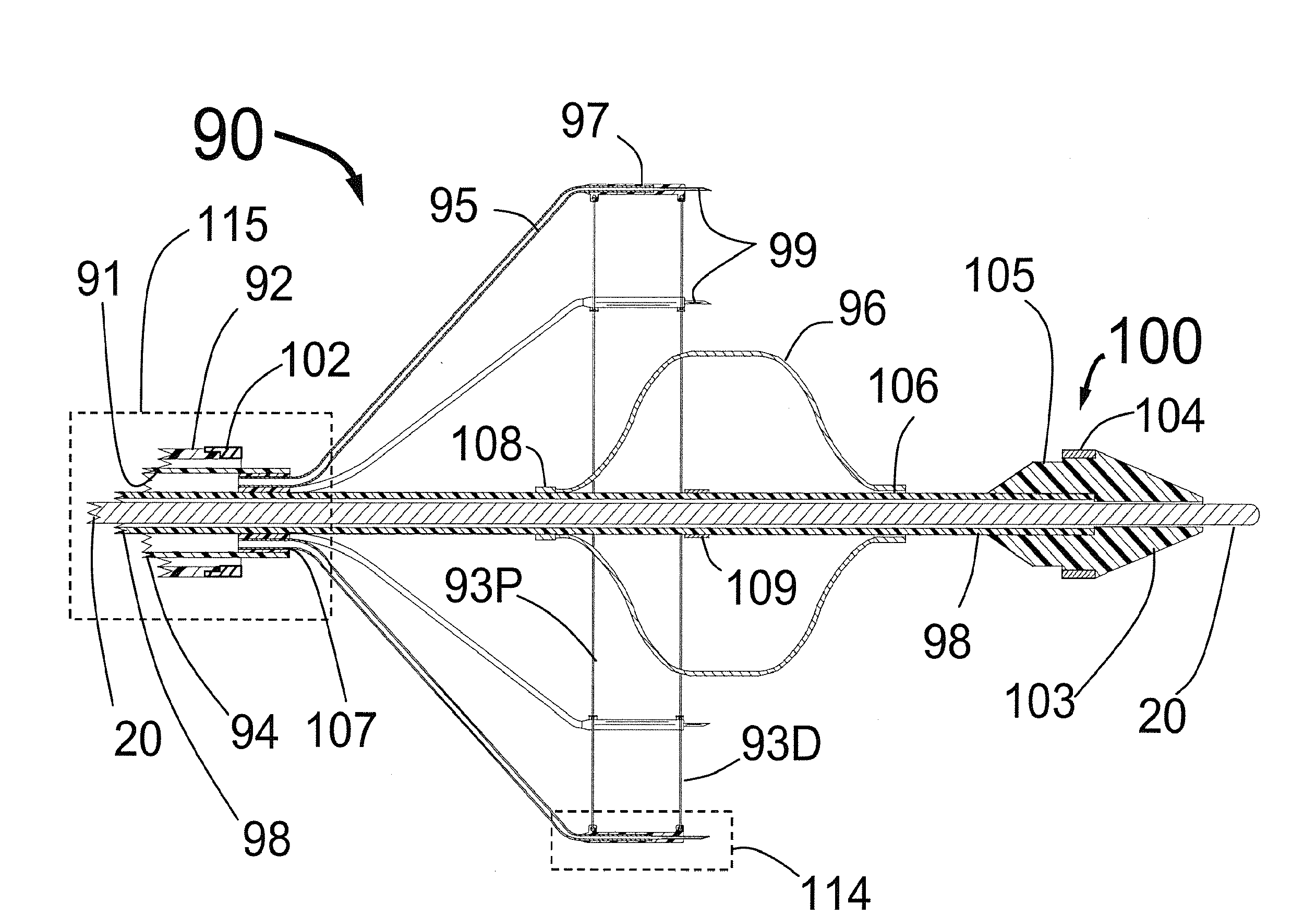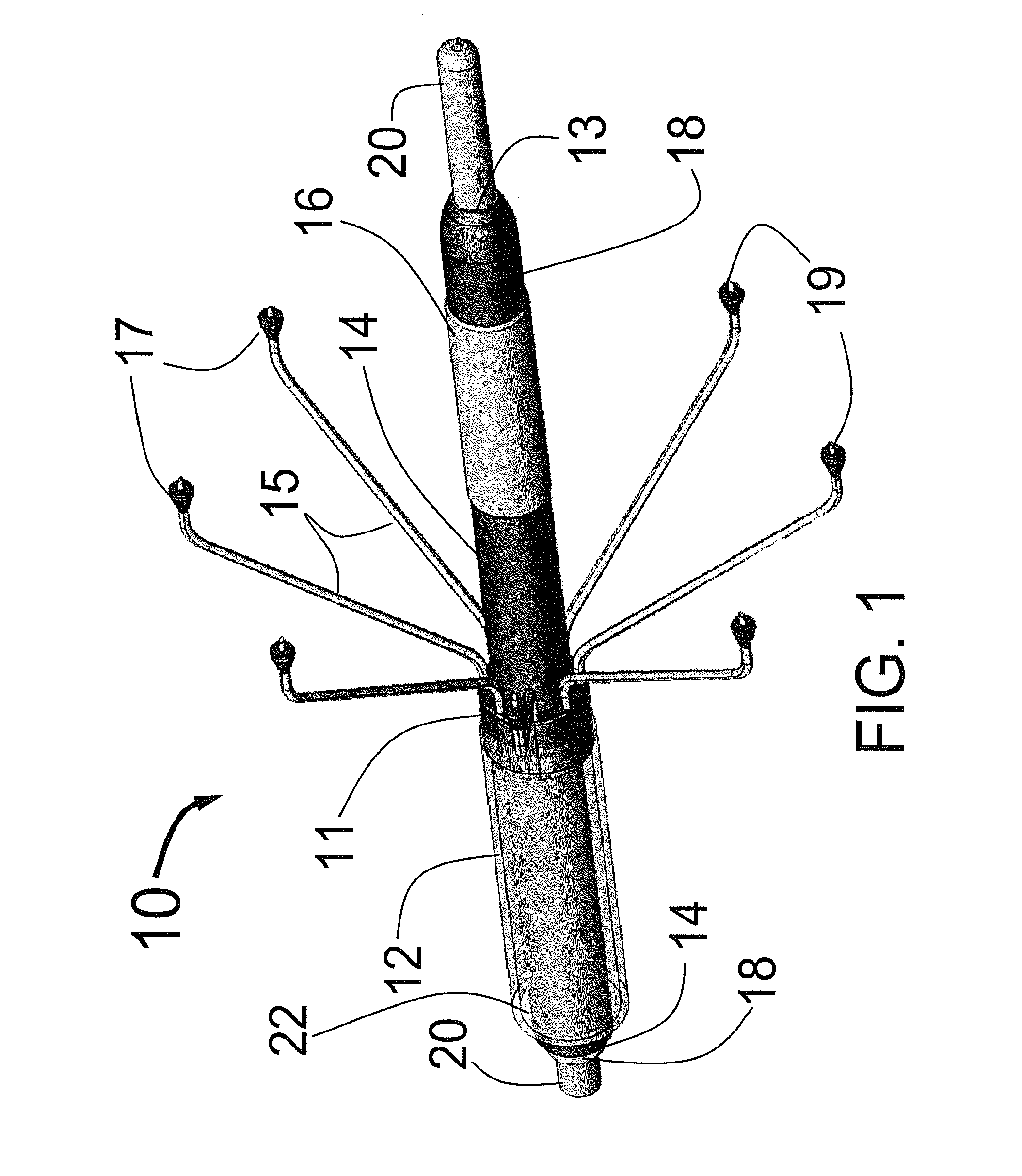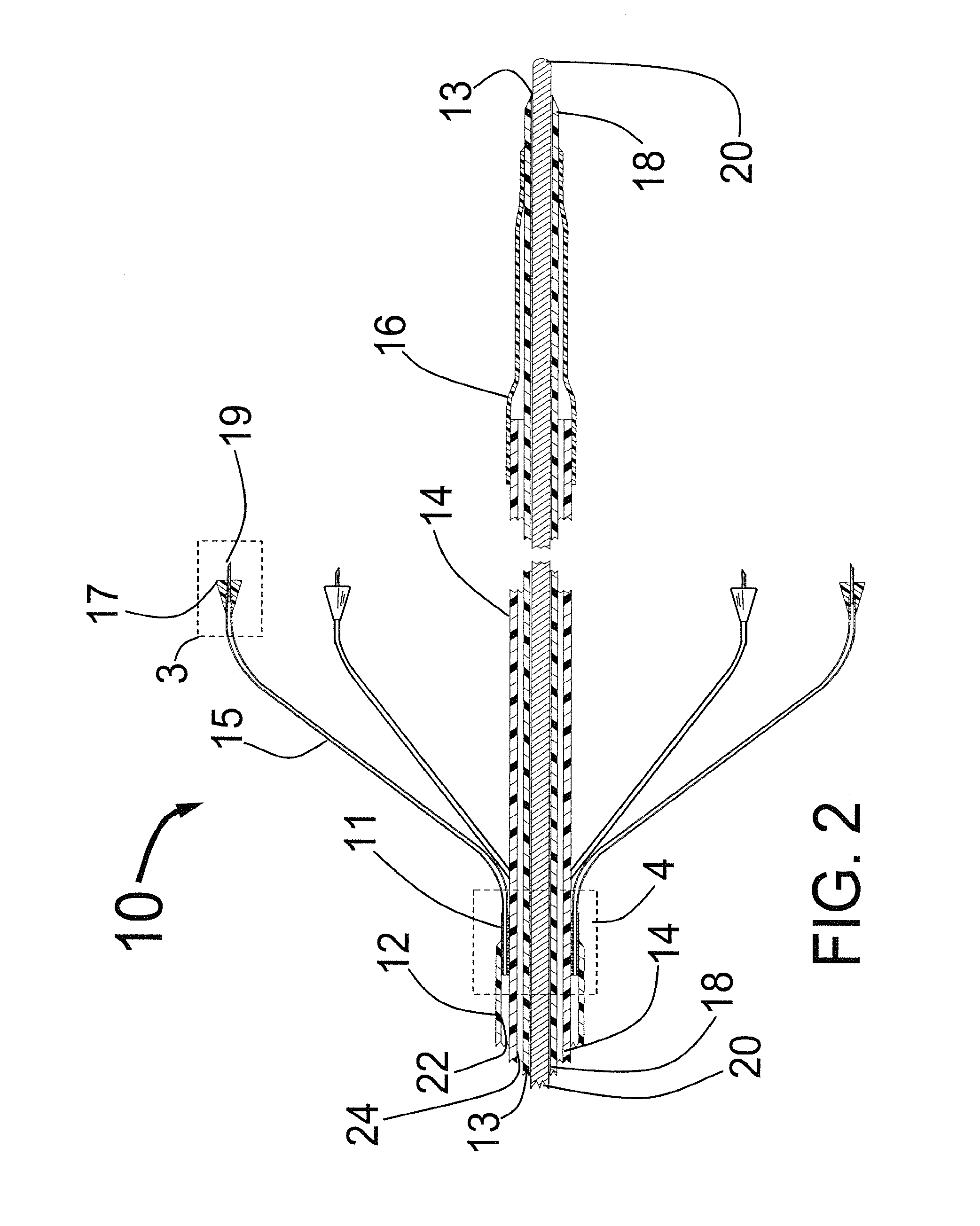Expandable catheter system for peri-ostial injection and muscle and nerve fiber ablation
a peri-ostial injection and expandable catheter technology, applied in the field of expandable catheter systems for peri-ostial injection and muscle and nerve fiber ablation, can solve the problems of thermal, cryoablative, or other injury to surrounding tissue, and systems that require significant capital outlay for reusable equipment outside the body, and achieve the effect of reducing and increasing the number of catheters
- Summary
- Abstract
- Description
- Claims
- Application Information
AI Technical Summary
Benefits of technology
Problems solved by technology
Method used
Image
Examples
Embodiment Construction
[0077]FIG. 1 is a three dimensional sketch of the distal end of the present invention Circular Ablation System (CAS) 10 in its state before it is loaded into a guiding catheter or sheath for delivery over the guide wire 20 into a human being. The proximal portion of the CAS 10 includes three tubes, an outer tube 12, a middle tube 14 and an inner tube 18. The guidewire 20 can be slidably advanced or removed through the guide wire lumen 13 inside of the inner tube 18. An expandable cylindrical balloon 16 is attached at its proximal end to the middle tube 14 and at its distal end to the inner tube 18. The balloon inflation lumen is located between the inner tube 18 and the middle tube 14. The balloon 16 can be inflated by injection of a fluid through the balloon inflation lumen and deflated by applying suction to the balloon inflation lumen.
[0078]An injector transition manifold 11 is sealed onto the outside of the middle tube 14. The outer tube 12 is sealed at its distal end onto the o...
PUM
 Login to View More
Login to View More Abstract
Description
Claims
Application Information
 Login to View More
Login to View More - R&D
- Intellectual Property
- Life Sciences
- Materials
- Tech Scout
- Unparalleled Data Quality
- Higher Quality Content
- 60% Fewer Hallucinations
Browse by: Latest US Patents, China's latest patents, Technical Efficacy Thesaurus, Application Domain, Technology Topic, Popular Technical Reports.
© 2025 PatSnap. All rights reserved.Legal|Privacy policy|Modern Slavery Act Transparency Statement|Sitemap|About US| Contact US: help@patsnap.com



